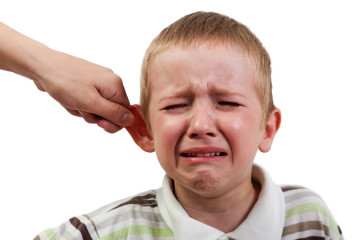If We Want Kids to Stop Dropping Out, We Have to Acknowledge Their Reality

by Laura Saccente February 1, 2025
When we talk about dropout rates, the conversation often veers toward blaming parents or students. “Parents should make sure their kids are at school on time.” “Students just need more discipline.”
Stop.
The truth is, parents are often in survival mode just as much as their kids. Many are working multiple jobs, leaving older siblings to take care of younger ones. And many students are in survival mode, too—juggling school with full-time work to help their families make ends meet.
It’s time we stop pretending that the structure of school is sacred and start acknowledging that, for a lot of kids, it’s the system itself that’s pushing them out.
The Illusion of Responsibility
We talk a lot about policies like due dates and late grades as though they’re tools to teach responsibility. “It’s important for kids to learn accountability,” we say. “They need to understand deadlines.”
No.
Literally no one learns responsibility because they got a zero on a late assignment. If you think you did, you’re lying to yourself. Maybe you were scared that your parents would punish you. Maybe you panicked and rushed to finish your next assignment out of fear. But fear isn’t responsibility.
Let’s be honest: you didn’t grow up to pay your bills on time because you got a zero once. Responsibility doesn’t come from arbitrary deadlines; it comes from understanding priorities and having the support to meet them.
For kids in survival mode, due dates are often impossible. The parent working back-to-back shifts to make rent isn’t turning in assignments on time. The high schooler working full-time to feed their siblings isn’t stopping to double-check their English paper.
Arbitrary due dates don’t teach kids about the real world—they punish them for the one they’re already living in.
Survival Mode
A lot of kids are in survival mode, plain and simple. They aren’t just trying to balance school with some extracurriculars—they’re balancing adult responsibilities, often without the support they need.
Here’s the reality for many students:
They’re responsible for younger siblings in the mornings or after school because their parents are working long hours.
They’re working full-time jobs—not for pocket money, but to help pay rent or buy groceries.
They’re navigating homelessness or unstable housing, showing up to school after spending the night in a car or a shelter.
When we demand that all kids adhere to the same rigid schedules and standards, we’re ignoring their realities. School becomes another impossible task in a day already full of them.
Stop Blaming Parents
And let’s stop saying, “Well, parents should just…” No. Parents are often struggling to survive, too. Many are doing everything they can just to keep the lights on and food on the table.
Instead of blaming parents for not meeting the school system’s expectations, maybe we should question why those expectations are so inflexible in the first place.
What Flexibility Looks Like
If we want kids to stay in school, we need to rethink what school looks like. Here are some ways we can build systems that meet students where they are:
- Later Start Times
This isn’t a new idea, and the science behind it is undeniable. Starting school even an hour later can lead to better attendance, improved mental health, and higher academic achievement.
- Hybrid and Flexible Schedules
Allow students to attend classes online or at alternate times. A student working a full-time job shouldn’t have to choose between earning a paycheck and earning a diploma.
- Support Systems for Families
Provide practical resources like before- and after-school childcare, food pantries, and access to mental health services.
- Focus on Engagement, Not Compliance
Redefine success. Instead of penalizing students for absences or late assignments, focus on helping them engage with the material in ways that work for them.
Rethinking School
We have to stop pretending that school’s rigid structure is what prepares kids for the “real world.” The real world isn’t one-size-fits-all, and our education system shouldn’t be either.
Kids aren’t dropping out because they’re lazy or undisciplined. They’re dropping out because school wasn’t designed for their lives, their challenges, or their futures.
If we want them to stay, we have to start listening to their reality—and we have to adapt.
Laura Saccente Russell is a National Board-Certified English teacher with nearly 20 years of experience in education. Passionate about creating equitable and engaging learning experiences, Laura specializes in curriculum refinement and integrating accessible teaching strategies to support diverse student needs. She advocates for reimagining traditional education systems to better prepare students for real-world challenges.
articlebiz.com







No Comment